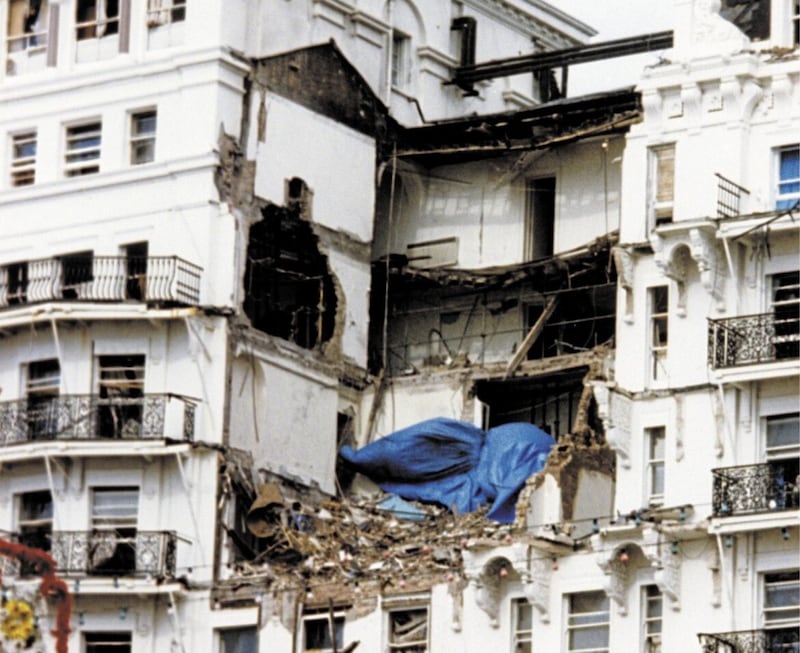MICHAEL Ancram, a former deputy leader of the Conservatives and Northern Ireland Minister who survived the IRA’s 1984 Brighton hotel bombing, has died aged 79.
First elected to parliament in 1974, the 13th Marquess of Lothian was the first Catholic to become a Scottish Conservative MP and was considered one of the architects of peace in Northern Ireland.
As part of Margaret Thatcher’s government, he was in bed during the IRA’s bombing of the Grand Hotel in Brighton in October 1984 during the party’s annual conference.
Rubble had blocked his fire escape and delayed his escape before he eventually found out that three of his close colleagues had been killed in the blast.

He served as Northern Ireland Minister for political development between 1993 and 1997, when much of the heavy lifting for the eventual peace deal in 1998 took place.
Starting by building up relationships with political parties, he had warned that the IRA could not “bargain” its way to the negotiating table, and dialogue could only take place with a permanent ceasefire.
He had acknowledged that Dublin would suggest cross-border bodies with executive powers, while telling loyalists linked to paramilitaries there would be no Troubles amnesty.
He also rejected Sinn Féin’s call for the security forces to decommission their weapons alongside the IRA, but supported the idea of the Royal Ulster Constabulary being reduced in size.
In May 1995, he was first minister in 22 years to meet in person with republican leaders such as Martin McGuinness - who he met at Stormont for four hours of “frank and businesslike” talks on how the IRA could disarm.
Within weeks, he was also the first to publicly shake hands with both McGuinness and Gerry Adams.
By February 1996, the IRA bombing of the Isle of Dogs ended their ceasefire and with it the momentum for peace until the eventual negotiations that led to the Good Friday Agreement.







